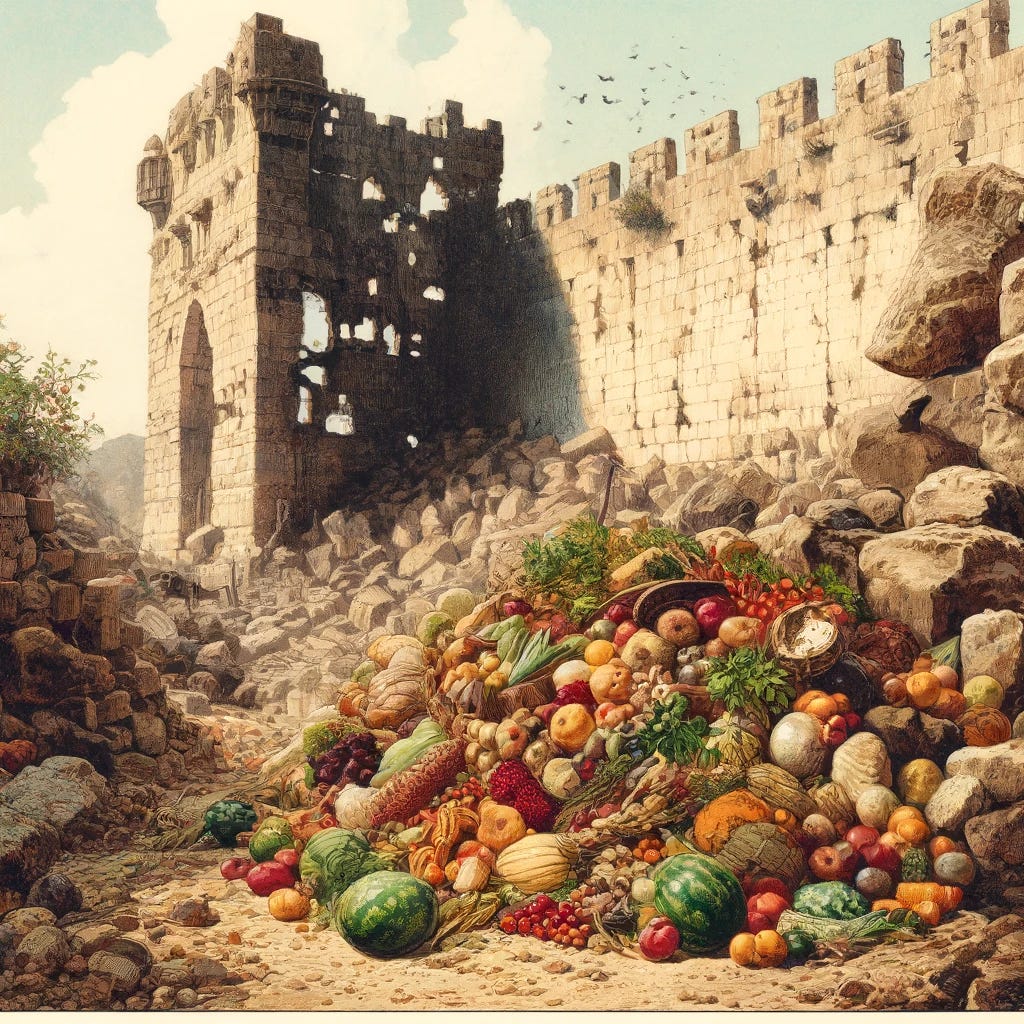A Partly Aramaic Brayta
Happy Pesach! Let us leave off with something on the daf.
The other day, Bava Metzia 53a, we encountered a partly Aramaic brayta. It read
לָא סָלְקָא דַּעְתָּךְ, דְּתַנְיָא בְּהֶדְיָא: מַעֲשֵׂר שֵׁנִי בָּטֵיל בְּרוּבָּא. וּבְאֵיזֶה מַעֲשֵׂר שֵׁנִי אָמְרוּ – בְּמַעֲשֵׂר שֶׁאֵין בּוֹ שָׁוֶה פְּרוּטָה, וְשֶׁנִּכְנַס לִירוּשָׁלַיִם וְיָצָא.
The Gemara states: The inference that second tithe is not negated at all should not enter your mind, as it is taught explicitly in a baraita: Second tithe is negated in a simple majority. And with regard to which second tithe did the Sages say this? It is with regard to second tithe that is not worth even one peruta, and which entered Jerusalem and exited.
The first part of the brayta is Aramaic. Yes, maaser sheini is Hebrew, but it is a technical term under discussion, for which Hebrew is preserved. But bateil and berubba are Aramaic.
The brayta itself treats this as a separate stratum. It is a quote from an earlier source, and so it clarifies, now in Hebrew — what type of maaser sheini was under discussion, namely one less than a perutah and which entered Yerushalayim and exited.
Within the Talmudic text, we might often take Hebrew as earlier and the Aramaic as the later, Stammaic commentary. This is different. Within Tannaitic sources, the Aramkaic material is often the very very early. Consider Megillat Taanit, which is very early and is Aramaic. (The dating of the Hebrew scholion is later.)
The sugya is actually centered on this early brayta, which specifies less that a peruta’s value. For some strange reason, perhaps because it is better to lead with a Mishnah than a brayta, the gemara begins with a conflict between Chizkiyah’s innovation — that one can deconsecrate less than a perutah’s worth on the original money — and a Mishnah which upon careful and correct reading, strongly implies that maaseir sheini can be nullified in a majority. Yet, if Chizkiya’s innovation is right and works, it should be davar sheyeish bo matirin and shouldn’t nullify even in 1000!
This is an extremely strange question, since the Mishnah doesn’t mention less than a perutah’s worth. Say a date of maaseir sheini worth a dinar fell amongst others. That should also be a majority nullifying it. But regular redemption should work there, and it is davar sheyeish bo matirin, something that has a mechanism of removing the prohibition. Why pick on poor Chizkiyah?
The answer, I think, is that we were always going to get to this central brayta.
The gemara’s harmonization regarding something that entered and left Yerushalayim is that it entered while the walls stood and then the walls fell.
This is suggested both according to the first explanation and the second, of Rav Huna bar Yehuda, quoting Rav Sheshet. (Tangentially, I’d consider Rav Huna bar Yehuda is a fourth- and fifth-generation Amora. He merited to see Rav Sheshet, but was a student-colleague of Rava.)
If this harmonization / explanation is true, then it works well with the Aramaic language, indicating its early age.
This may have dated to around the churban habayit, and they had to grapple with lots of maaser sheni in limbo. Part of how they dealt with it was to say this if it somehow had been mixed with other produce, and / or it is a minor amount (which could then “poison” lots of other produce), forget about it, we will apply the Biblical law of batel berov.
Chag kasher vesame’ach! And may we merit to eat maaseir sheini in Yerushalayim some time soon.


